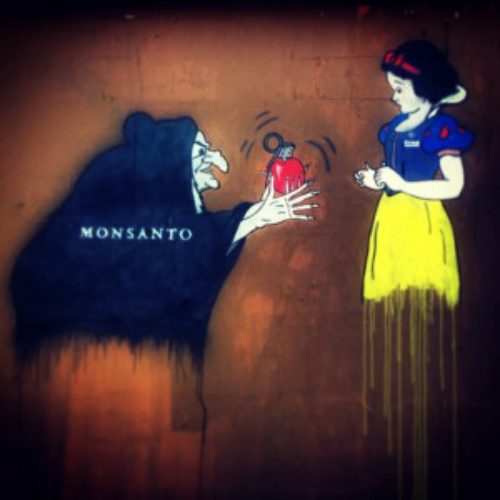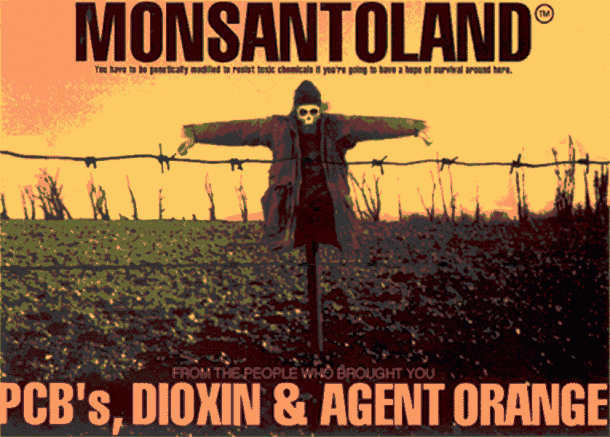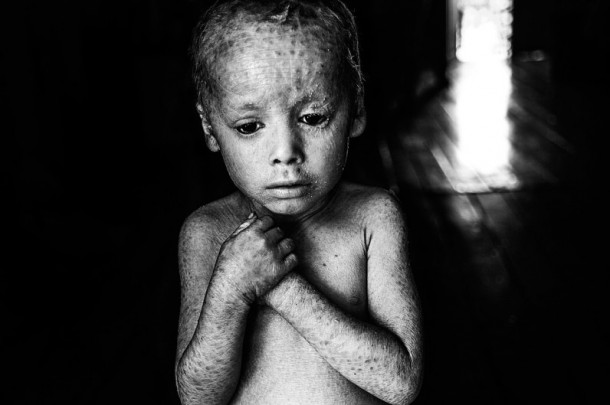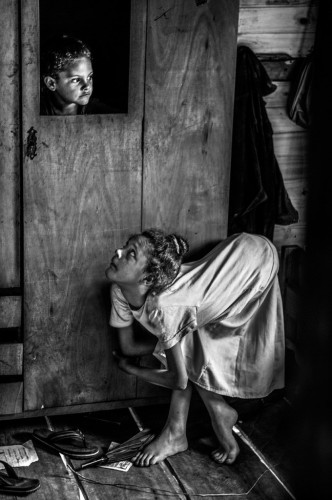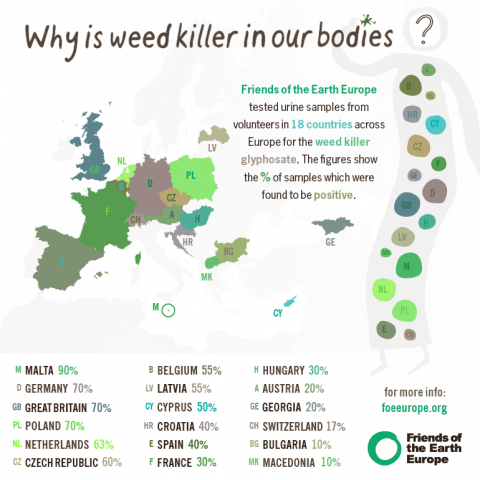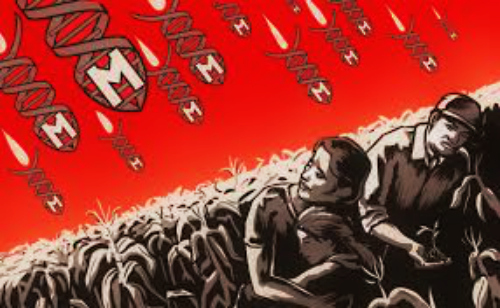The most famous and powerful biotech company in the world, the US-based Monsanto will be investigated for crimes against nature and humanity thanks to the work of a group of leading scientists, scholars and activists. The decision to establish a Monsanto Tribunal has been announced last December in Paris by a group of leading independent figures, among whom Vandana Shiva, Marie-Monique Robin, Valérie Cabanes.
The Tribunal will be held in The Hague in October 2016, and will be led by Professor Olivier De Schutter, a Belgian legal scholar and former United Nations Special Rapporteur on the right to food. Quite interestingly, the initiative differs significantly from opinion tribunals: it will be run according to international legal procedures. The proceeding will rely on the Guiding Principles on Business and Human Rights adopted at the United Nations in 2011. However, it will not be internationally recognized.
Monsanto, a “sustainable agriculture company”
Monsanto is one of the most controversial companies in the world. Since more than one century, Monsanto plays a leading role in promoting the industrial agriculture model on a global scale, a chemical-intensive form of production that is causing environmental pollution and biodiversity loss. This model also massively contributes to global warming: agro-business is responsible for at least 30 % of greenhouse gas emissions. Today the company is the world leader in the production of Genetically Modified Organisms (GMOs), whose production goes hand in hand with a massive use of chemicals.
Monsanto, an “environmental-friendly company”
Since its establishment in 1901, the company has developed herbicides and pesticides whose toxicity is the source of great environmental and human health concerns. Among them, Agent Orange, used by the US Army during the Vietnam War and still cause of birth defects and cancer. Lasso, an herbicide that is now banned in Europe, and RoundUp, the most widely used weed-killer in the world. Its main component, the glyphosate, is currently the protagonist of a harsh regulatory battle in the EU.
Monsanto, “bringing innovation to life”
Since its founding in 1901, the multinational biotech company survived several trials due to the toxicity of its products. Over the years it has been accused of negligence, fraud, health and environmental disaster, use of false evidence.In September 2015, a French court upheld a 2012 ruling in which Monsanto was found to be legally responsible for the chemical poisoning of a French farmer, who suffered neurological problems after inhaling Lasso weedkiller in 2004.
The regulatory battle on glyphosate in the EU
Lasso is not Monsanto’s sole herbicide accused of being harmful. In March 2015 the International Agency for Research on Cancer (IARC)? part of World Health Organization (WHO), stated that glyphosate is probably human carcinogenic.
In November 2015 EFSA, the European Food Safety Authority made a ‘peer review’ relying on anonymous officials and reached the opposite conclusion. Now it’s up to the European Commission to decide whether to include glyphosate in the list of susbstances banned in the EU market. An open letter signed by 96 scientists was sent on November 30 to the Commission to express deep concern and urge to reconsider the difference in the two conclusions:
The IARC [Working Group] decision was reached relying on open and transparent procedures by independent scientists who completed thorough conflict-of-interest statements and were not affiliated or financially supported in any way by the chemical manufacturing industry.
The same, unfortunately, cannot be said of EFSA. Clearly, Monsanto is deploying a wide range of lobbying techniques to avoid this possibility. And the EU regulatory landscape offers a lot of opportunities: lack of transparency in lobbying activities, the use of “external experts” from the private sector, the revolving door phenomenon are ordinary practices at the EU level.
Glyphosate is a cornerstone of Monsanto’s business: in 2014, more than 5 billion dollars of RoundUp were sold in the global market. However, the battle is not just about Monsanto: pretty much all chemical companies produce and market glyphosate-based herbicides since the patent expired in 2000. Bayern, Syngenta and others are equally concerned. In a small study published in June 2013, Friends of the Earth Europe found traces of glyphosate in the urine of individuals in 18 European countries.
Why a Monsanto Tribunal?
According to its critics, Monsanto is a “text-book case of impunity”. It is largely responsible for the depletion of soil and water resources, environmental pollution and human health concerns, and the displacement of millions of small farmers worldwide. It threatens peoples’ food sovereignty “by patenting seeds and privatizing life”. And ad hoc legal proceedings cannot replace the intervention by the public authorities. The company has huge financial resources and is able to put aside huge sums of money to stand trials without changing its dangerous practices.
Monsanto is able to ignore the human and environmental damage caused by its products and maintain its devastating activities through a strategy of systemic concealment: by lobbying regulatory agencies and governments, by resorting to lying and corruption, by financing fraudulent scientific studies, by pressuring independent scientists, by manipulating the press and media, etc.
Monsanto Tribunal
Ecocide as an international crime
To date there is no legally binding instrument to prosecute and convict companies responsibles for crimes against human health or the environment. This is why the advocates of the Monsanto Tribunal ask for the recognition of the crime of ecocide. The Tribunal will assess potential criminal liability on the basis of the Rome Statute, and will consider whether a reform of the international criminal law is needed to include ecocide as a prosecutable criminal offense.
Ecocide is the extensive damage to, destruction of or loss of ecosystem(s) of a given territory, whether by human agency or by other causes, to such an extent that peaceful enjoyment by the inhabitants of that territory has been or will be severely diminished.
Costs and funding of the Tribunal
The estimated cost of the Tribunal is 1 million dollars. Several organisations and committed individuals have already contributed to the cause. If you want to take part to the biggest crowdfunding initiative ever set up, visit Monsanto Tribunal website.

